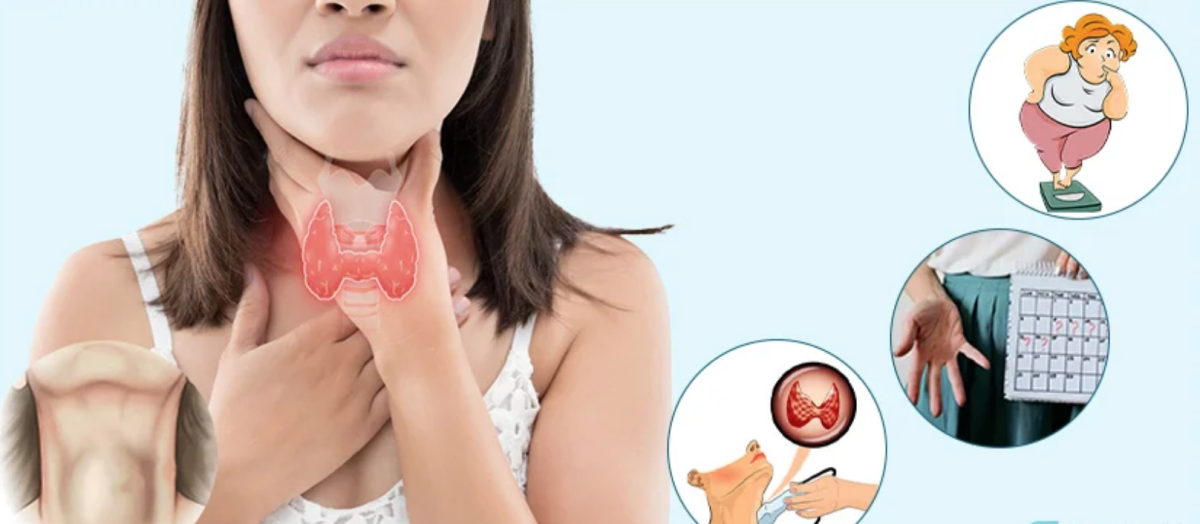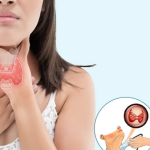Demystifying Low Thyroid Function in Women: An In-Depth Discussion with Shamis Tate FNP

The thyroid, a small yet immensely important gland located at the base of your neck, might not be something you think about daily. However, its function is crucial to your overall health and well-being, particularly for women. Today, we delve deeper into this subject with insights from medical expert Shamis Tate FNP on how to detect low thyroid function.
The Thyroid: A Miniature Powerhouse
Often underappreciated, the thyroid plays a critical role in your body, producing hormones that influence nearly every metabolic process. When the thyroid isn't functioning as it should, it can lead to a myriad of health issues. Hypothyroidism, also known as low thyroid function, is one such condition that can drastically affect one's quality of life.
According to Shamis Tate FNP, hypothyroidism is more common in women than in men, especially those over the age of 60. Recognizing its signs and symptoms early can significantly enhance management and treatment outcomes.
The Subtle Signs of Low Thyroid Function
Detecting low thyroid function isn't always straightforward. Shamis Tate notes that the symptoms of hypothyroidism can be subtle and easily mistaken for other health issues, leading many women to overlook the possibility of a thyroid disorder.
"The signs of hypothyroidism can vary widely based on the severity of the hormone deficiency. However, some common symptoms include unexplained fatigue, weight gain, intolerance to colds, constipation, dry skin, and depression. More severe symptoms might include muscle weakness, joint pain, heavy or irregular menstrual periods, and a slowed heart rate," Shamis Tate explains.
But, as with many health conditions, these symptoms can be indicative of a variety of ailments. Therefore, proper testing is crucial for an accurate diagnosis.
Testing for Hypothyroidism: Beyond the Symptoms
So how do we move beyond the symptoms to accurately detect low thyroid function? Shamis Tate FNP offers valuable insight into the diagnostic process.
"A simple blood test that measures Thyroid Stimulating Hormone (TSH) levels is the primary method for detecting hypothyroidism," Shamis says. "An elevated TSH level can be a strong indicator of low thyroid function. However, it's not the only measure."
Shamis Tate also stresses the importance of Free T4 tests. Free T4 measures the amount of unbound and available thyroid hormone in the blood, providing a more comprehensive picture of thyroid health.
"Sometimes, even if the TSH level is within the normal range, the Free T4 level might be low, indicating what we call 'subclinical hypothyroidism.' This condition can progress to overt hypothyroidism over time if left untreated."
Management and Treatment of Low Thyroid Function
Detecting hypothyroidism is only the first step. Shamis Tate FNP stresses that appropriate management and treatment are equally crucial in handling this condition.
"Once diagnosed with hypothyroidism, treatment usually involves daily intake of synthetic thyroid hormone levothyroxine. This oral medication aims to restore adequate hormone levels, reversing the signs and symptoms of hypothyroidism," Shamis Tate shares.
However, treatment is not one-size-fits-all. Regular monitoring is necessary to ensure that the dosage is correct and is effectively managing the symptoms. It may take some time to find the right dosage, and factors like age, weight, and overall health can affect the amount of medication needed.
The Importance of Lifestyle Changes
Shamis Tate FNP also emphasizes the importance of lifestyle changes in managing hypothyroidism. Alongside medication, a balanced diet, regular exercise, and stress management can significantly improve your thyroid health.
"A diet rich in fruits, vegetables, lean proteins, and complex carbohydrates can support overall health and thyroid function," Shamis says. "Regular exercise not only helps manage weight but also reduces fatigue and depression, common symptoms of hypothyroidism."
As for stress, Shamis explains, "Chronic stress can wreak havoc on your thyroid. Activities like yoga, meditation, or just spending some quiet time in nature can reduce stress levels and support better thyroid health."
Regular Monitoring and Follow-ups
Shamis Tate also emphasizes the importance of regular follow-ups after a diagnosis of low thyroid function. "Hypothyroidism is a lifelong condition. Regular check-ups with your healthcare provider will ensure your symptoms are under control and your medication dosage remains appropriate. Any changes in your symptoms, weight, or overall health should be reported promptly."
A Final Word from Shamis Tate FNP
Shamis Tate FNP concludes with this advice, "Hypothyroidism, like many other health conditions, is highly individualized. Don't compare your symptoms or treatment to others. Listen to your body, follow your healthcare provider's advice, and take an active role in managing your condition."
Conclusion
Understanding low thyroid function is essential for women's health. If you or someone you know is experiencing signs of hypothyroidism, reach out to a healthcare provider for further assessment and advice.
Trust experts like Shamis Tate FNP, who can demystify the complexities of hypothyroidism and guide you on a path toward health and wellness. Your thyroid health is important, and with the right help, you can navigate your health journey with confidence.
In conclusion, recognizing and managing low thyroid function in women can be a complex process, but with expert guidance from professionals like Shamis Tate FNP, it can be navigated successfully. Your health is our priority, so if you have any questions or concerns, please feel free to reach out.




